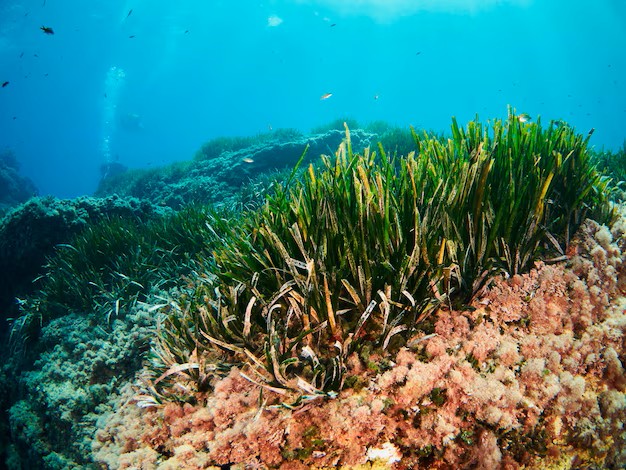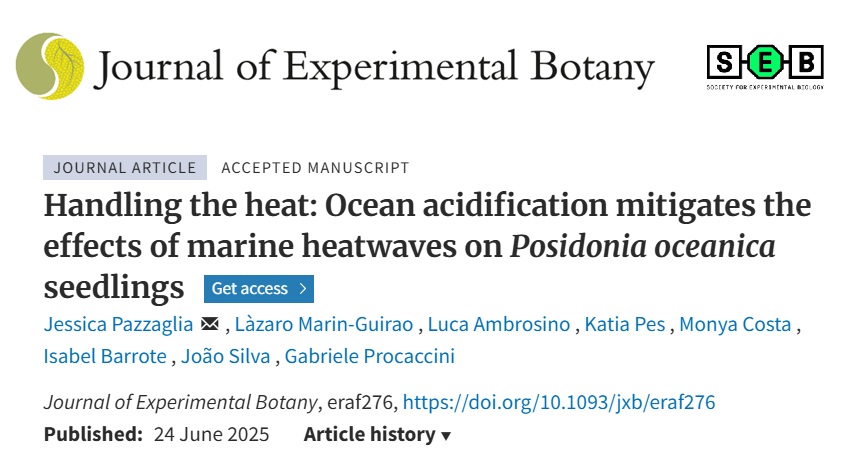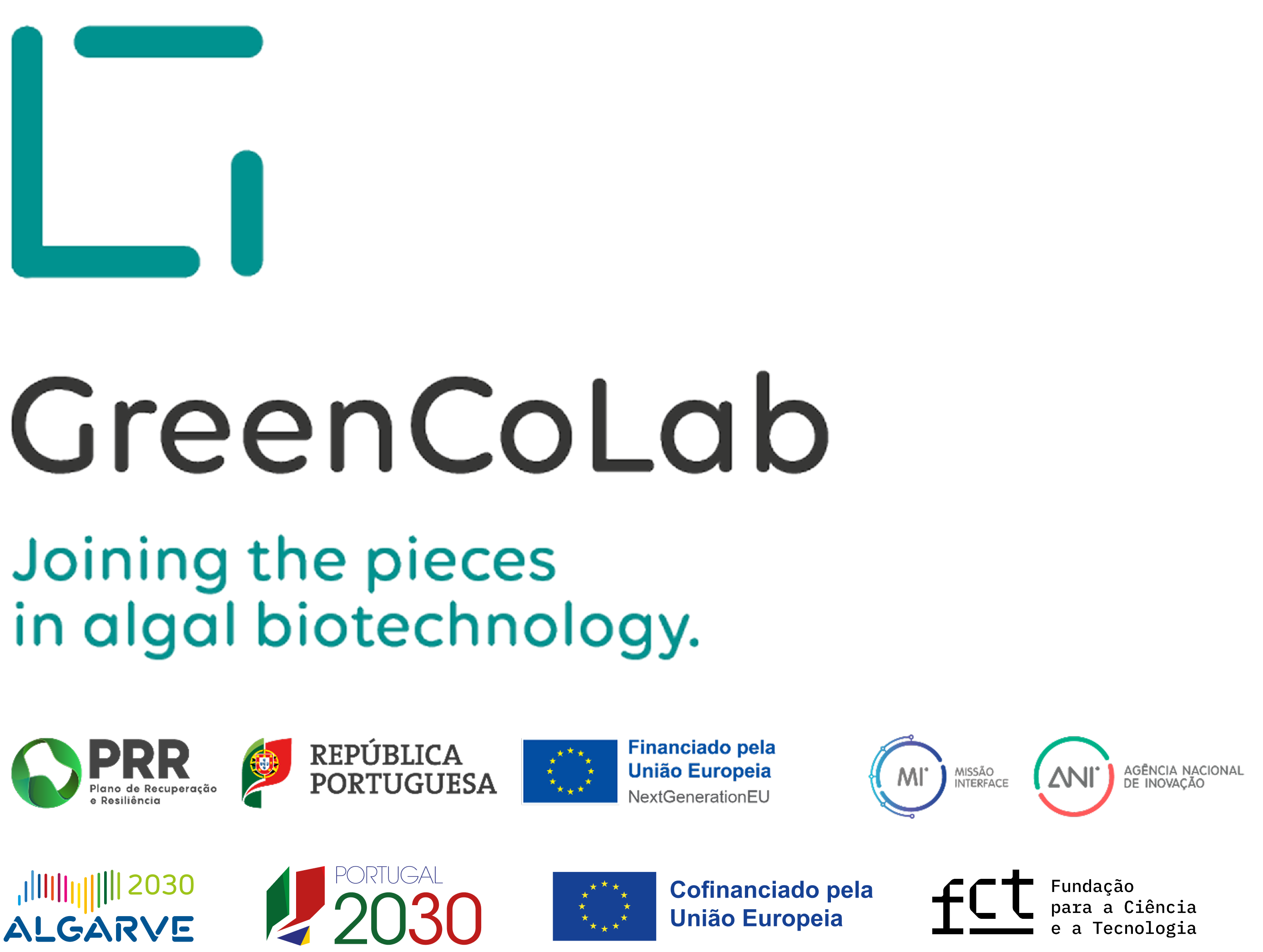

TITLE
Handling the heat: Ocean acidification mitigates the effects of marine heatwaves on Posidonia oceanica seedlings
JOURNAL
Journal of Experimental Botany
AUTHORS
Jessica Pazzaglia, Lázaro Marin-Guirao, Luca Ambrosino, Katia Pes, Monya Costa, Isabel Barrote, João Silva, Gabriele Procaccini
ABSTRACT
Ocean acidification (OA) and marine heatwaves (MHWs) are key drivers of marine ecosystem changes that can interact and influence marine organisms. Seagrasses, including the long-lived Posidonia oceanica endemic to the Mediterranean Sea, are widely distributed along coastal habitats, forming highly valuable underwater meadows. The germination and survival of the early life stages of P. oceanica are strongly affected by environmental changes. To assess the impact of warming and acidification on its future, we conducted a multifactorial experiment where P. oceanica seedlings were grown under OA conditions for six months and then exposed to a seawater warming event. Seedlings’ performance was investigated by analyzing photo-physiology, antioxidant capacity, energetic metabolism and transcriptomic profiles. The Weighted Gene Correlation Network Analysis (WGCNA) was used to integrate phenotypic plant traits with transcriptomic results to identify central genes involved in plant responses to OA and temperature exposure. Results demonstrated that prolonged OA exposure enhances P. oceanica seedling resilience to MHW. Specifically, seedlings regulated their antioxidant systems and transcriptomic machinery to better cope with thermal stress. Under current CO2 concentrations, elevated temperatures induced stress in P. oceanica seedlings, impacting photosynthesis and respiration. However, OA could mitigate the impact of warming in the future, enhancing P. oceanica‘s resilience to global stressors.



